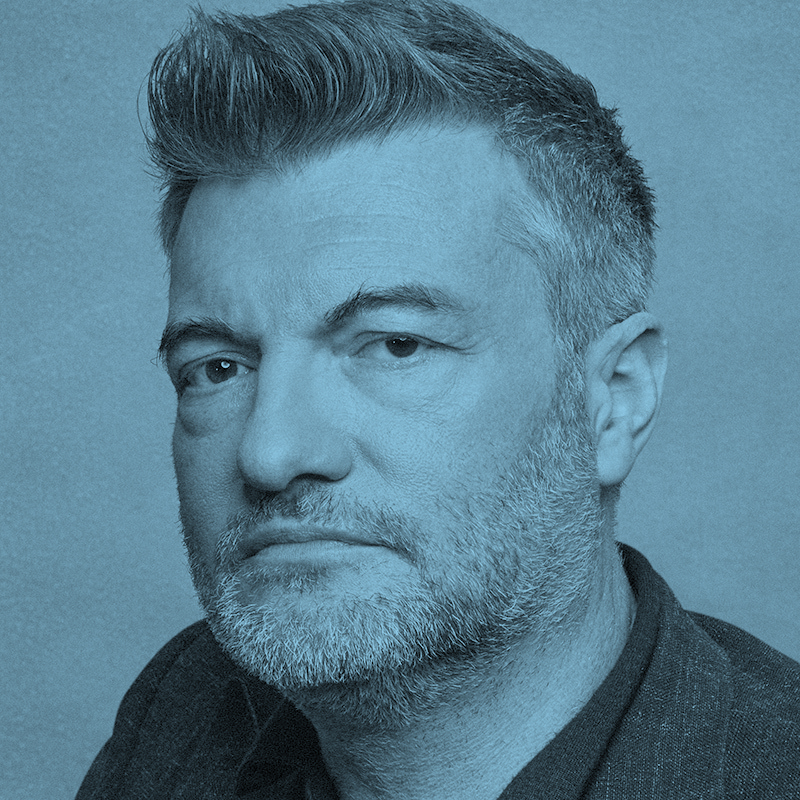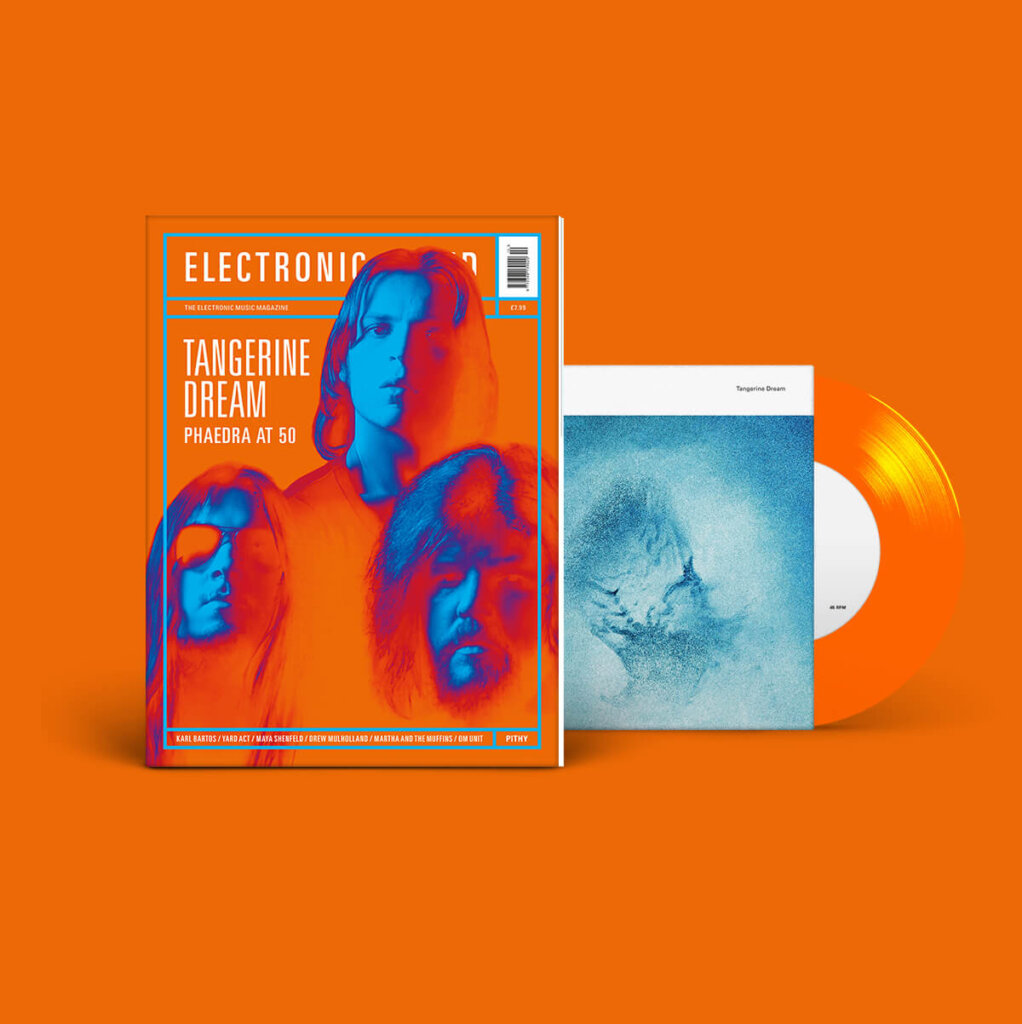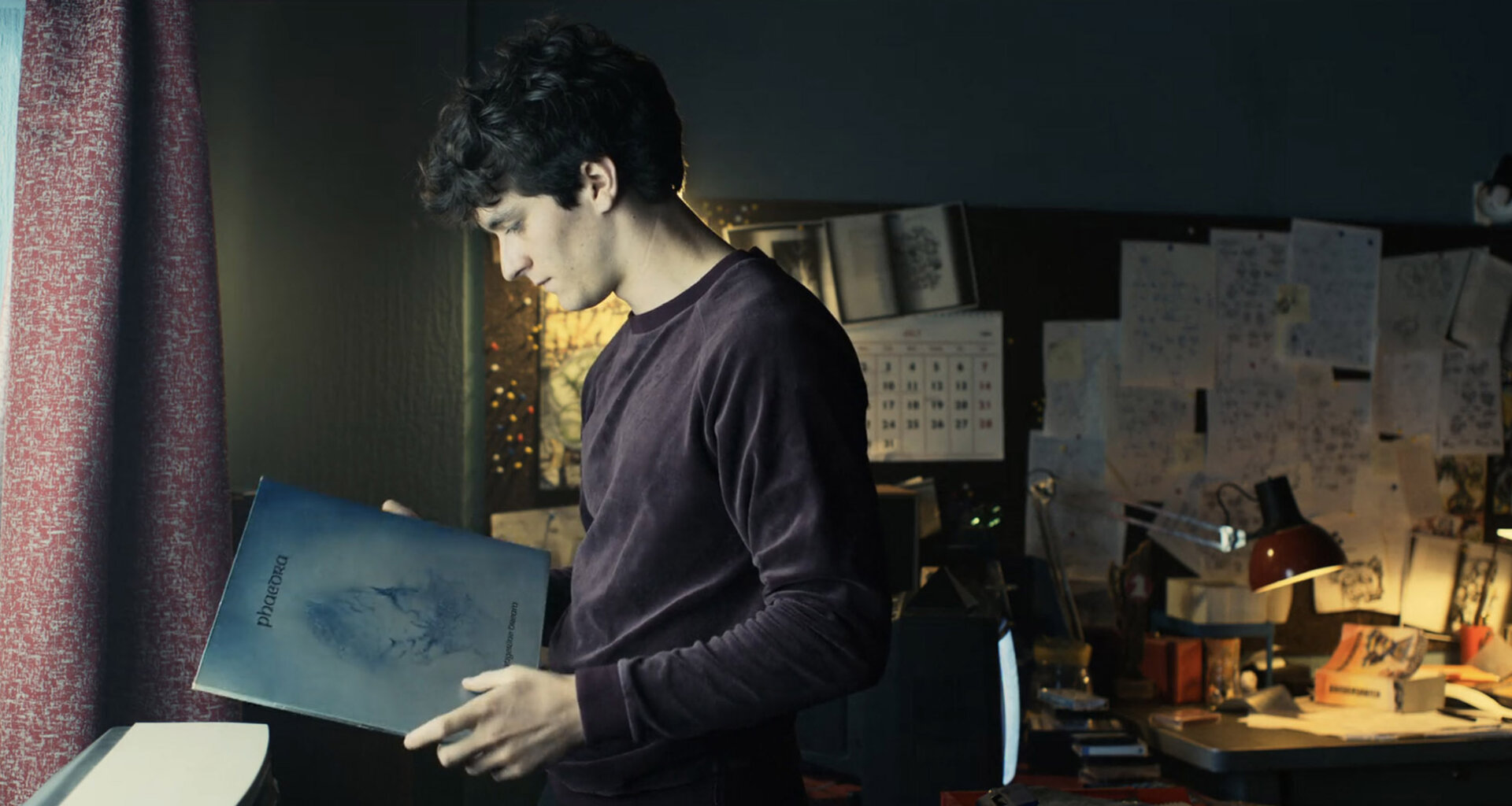Half a century has passed since the release of Tangerine Dream’s ‘Phaedra’, but traces of the album are still observable in pop culture today, as shown by its surprise inclusion in the zeitgeisty and hugely divisive interactive ‘Black Mirror: Bandersnatch’ film from 2018. We spoke with the show’s creator, the one and only Charlie Brooker, to hear why he finds the masterpiece “simultaneously fascinating, and a little bit scary”…
Hi Charlie. First off, tell us about the interactive narrative in ‘Black Mirror: Bandersnatch’ which leads up to the ‘Phaedra’ scene
“The idea was to provide the viewer / player with increasingly tricky choices as the story developed. Early on Stefan, played by Fionn Whitehead, is on the bus, choosing between a Thompson Twins or a Eurhythmics track to listen to on his Walkman. Later he meets legendary coder Colin Ritman, played by Will Poulter, who’s an idol of his, and becomes almost a sort of mystic guru who’s aware that he exists within a game.
“Originally Colin was conceived as a bit of a hippy, but he ended up more eclectic and interesting than that – he’s styled in a post-punk kind of way. Anyhow, Colin gives Stefan a list of albums he recommends as ‘good music to write games to’, and ‘Phaedra’ is on there. That becomes one of the next choices for the player – which album to buy in WHSmith. The choice you make then plays on the soundtrack of the resulting montage.”
Why did you select ‘Phaedra’ as one of the two albums?
“It’s an album I heard a lot in my childhood. It was a toss up between ‘Rubycon’ and ‘Phaedra’. Though I prefer the album cover for ‘Rubycon’, ‘Phaedra’ was a better fit for the soundtrack! It was then supposed to be a choice between that and ‘Radio-Activity’ by Kraftwerk, though unfortunately we couldn’t clear it for some reason, so Tomita’s ‘The Bermuda Triangle’ was a last-minute substitution. In retrospect, I wish we’d opted for a very different choice for that second album – maybe one between ‘Phaedra’ and something like ‘Who’s Afraid Of The Art Of Noise’ would’ve been more distinct… and we’d have edited the montages differently, rather than identically!”
If you had to choose, would you take ‘Phaedra’ or ‘The Bermuda Triangle’?
“‘Phaedra’, without question.”

Has electronic music played a big part in your life as a listener?
“When he was younger, my dad had pretty eclectic tastes – there was Kraftwerk, Tangerine Dream, the Sex Pistols, AC/DC and Ivor Cutler. When I was about seven or eight I used to listen to them wearing a big pair of chunky headphones, and found them fascinating. I didn’t realise at the time what an odd collection of albums this was.
“But like any child of the 70s/80s, I grew up with the sounds of the BBC Radiophonic Workshop soundtracking roughly 50 per cent of the TV shows I was exposed to, so electronic sounds have been part of the background for as long as I could remember. Even so, I found the Tangerine Dream and Kraftwerk albums simultaneously fascinating, and a little bit scary, because they sounded so unlike the rock and pop I heard on the radio.
“As time went on techno and rave and so on became a huge thing, so there was an embarrassment of other riches – stuff like ‘Stakker Humanoid’, Joey Beltram’s ‘Energy Flash’, ‘Trip II The Moon (The Darkside)’ by Acen, Aphex Twin, and so on and so on. I still listen to stuff like that all the time.”
With your film work, especially in ‘Black Mirror’, it seems music is often used to help ground the audience in narratives which are often surreal and dystopian. How much thought do you give to track selection when writing?
“A lot. Maybe too much! In ‘Black Mirror’ we’ve got an unofficial ‘theme’ with the song ‘Anyone Who Knows What Love Is (Will Understand)’ by Irma Thomas. It plays in various episodes at different times across the seasons, just because it’s beautiful and timeless and kind of sad. I often specify music choices in the script, which would be a real no-no if I wasn’t also one of the executive producers.”
What are you thinking about when soundtracking?
“I always love it when we find a track that’s both evocative and in some way comments on the action. Sometimes it’s incredibly specific. The episode ‘San Junipero’ had specific music choices woven into the script as part of the story – they’re all evocative of the era obviously, but beyond that they’re serving a purpose. For instance, ‘Living In A Box’ is a cheeky nod to the fact that a lot of the inhabitants are dead people living in a computer simulation, and ‘Heaven Is A Place on Earth’ gives the entire story an on-the-nose but uplifting ending. I’m also a fan of incredibly on-the-nose song choices, especially ones that make me laugh.”
Do you have any favourite examples of ‘on-the-nose’ soundtracking choices?
“We had one recently in the episode ‘Demon 79’ where the main character Nida is looking around a pub, choosing a victim to murder – with a hammer – and ‘Hit Me With Your Rhythm Stick’ comes on the jukebox as she makes her decision. I’ve always enjoyed an ironic counterpoint to the action ever since my series ‘Dead Set’, where we had a zombie massacre take place to the sound of ‘Grace Kelly’ by Mika.”
An edited version of this interview features in Issue 110. You can order it now from electronicsound.co.uk/shop







